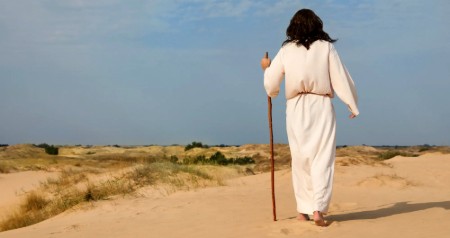A Hindu Opposes the Persecution of Indian Christians
FREE Catholic Classes
As a believing Hindu, I am ashamed of what is being done by people claiming to be acting in the name of my faith.
Highlights
Chiesa (chiesa.espresso.repubblica.it)
10/4/2008 (1 decade ago)
Published in Asia Pacific
ORISSA (Chiesa) - There are basically two kinds of politics in our country: the politics of division and the politics of unity. The former is by far the more popular as politicians seek to slice and dice the electorate into ever-smaller configurations of caste, language and religion, the better to appeal to such particularist identities in the quest for votes.
(Proud to be Catholic? Show Your Support Right Now! Virtual Vigil of Prayer and Solidarity for the Persecuted Church in India. Please Sign the 'Catholic Action' Petition!)
But what has happened in recent weeks in Orissa, and then in parts of Karnataka, and that threatens to be unleashed again in tribal districts of Gujarat, is a new low in our political life. The attacks on Christian families, the vandalism of their places of worship, the destruction of homes and livelihoods, and the horrific rapes, mutilations and burning alive that have been reported, have nothing to do with religious beliefs - neither those of the victims nor of their attackers. They are instead part of a contemptible political project whose closest equivalent can in fact be found in the "Indian Mujahideen" bomb blasts in Delhi, Jaipur, and Ahmedabad, which were set to go off in hospitals, marketplaces and playgrounds. Both actions are anti-national; both aim to divide the country by polarising people along their religious identities; and both hope to profit politically from such polarisation.
We must not let either set of terrorists prevail.
The murderous mobs of Orissa sought to kill Christians and destroy their homes and places of worship, both to terrorise the people and to send the message 'you do not belong here'. What have we come to that a land that has been a haven of tolerance for religious minorities throughout its history should have sunk so low? India's is a civilisation that, over millennia, has offered refuge and, more important, religious and cultural freedom, to Jews, Parsis, Muslims and several varieties of Christians. Christianity arrived on Indian soil with St Thomas the Apostle ('Doubting Thomas'), who came to the Kerala coast some time before 52 AD and was welcomed on shore by a flute-playing Jewish girl. He made many converts, so there are Indians today whose ancestors were Christian well before any European discovered Christianity (and before the forebears of many of today's Hindu chauvinists were even conscious of themselves as Hindus). The India where the wail of the muezzin routinely blends with the chant of mantras at the temple, and where the tinkling of church bells accompanies the gurudwara's reading of verses from the Guru Granth Sahib, is an India of which we can all be proud. But there is also the India that pulled down the Babri Masjid, that conducted the pogrom in Gujarat and that now unleashes its hatred on the 2% of our population who are Christians.
As a believing Hindu, I am ashamed of what is being done by people claiming to be acting in the name of my faith. I have always prided myself on belonging to a religion of astonishing breadth and range of belief; a religion that acknowledges all ways of worshipping God as equally valid - indeed, the only major religion in the world that does not claim to be the only true religion. Hindu fundamentalism is a contradiction in terms, since Hinduism is a religion without fundamentals; there is no such thing as a Hindu heresy. How dare a bunch of goondas shrink the soaring majesty of the Vedas and the Upanishads to the petty bigotry of their brand of identity politics? Why should any Hindu allow them to diminish Hinduism to the raucous self-glorification of the football hooligan, to take a religion of awe-inspiring tolerance and reduce it to a chauvinist rampage?
Hinduism, with its openness, its respect for variety, its acceptance of all other faiths, is one religion which has always been able to assert itself without threatening others. But this is not the Hindutva spewed in hate-filled diatribes by communal politicians. It is, instead, the Hinduism of Swami Vivekananda, who, at Chicago's World Parliament of Religions in 1893, articulated best the liberal humanism that lies at the heart of his (and my) creed. Vivekananda asserted that Hinduism stood for "both tolerance and universal acceptance. We believe not only in universal toleration, but we accept all religions as true." He quoted a hymn: "As the different streams having their sources in different places all mingle their water in the sea, so, O Lord, the different paths which men take through different tendencies, various though they appear, crooked or straight, all lead to Thee." Vivekananda's vision - summarised in the credo Sarva Dharma Sambhava - is, in fact, the kind of Hinduism practised by the vast majority of Hindus, whose instinctive acceptance of other faiths and forms of worship has long been the vital hallmark of Indianness.
Vivekananda made no distinction between the actions of Hindus as a people (the grant of asylum, for instance) and their actions as a religious community (tolerance of other faiths): for him, the distinction was irrelevant because Hinduism was as much a civilisation as a set of religious beliefs. "The Hindus have their faults," Vivekananda added, but "they are always for punishing their own bodies, and never for cutting the throats of their neighbours. If the Hindu fanatic burns himself on the pyre, he never lights the fire of Inquisition."
It is sad that this assertion of Vivekananda's is being contradicted in the streets by those who claim to be reviving his faith in his name. "The Hindu militant," Amartya Sen has observed, presents India as "a country of unquestioning idolaters, delirious fanatics, belligerent devotees, and religious murderers." To discriminate against another, to attack another, to kill another, to destroy another's place of worship, is not part of the Hindu dharma so magnificently preached by Vivekananda. Why are the voices of Hindu religious leaders not being raised in defence of these fundamentals of Hinduism?
---
Chiesa is a wonderful source on all things Catholic in Europe. It is skillfully edited by Sandro Magister. SANDRO MAGISTER was born on the feast of the Guardian Angels in 1943, in the town of Busto Arsizio in the archdiocese of Milan. The following day he was baptized into the Catholic Church. His wife’s name is Anna, and he has two daughters, Sara and Marta. He lives in Rome.
Join the Movement
When you sign up below, you don't just join an email list - you're joining an entire movement for Free world class Catholic education.
-

-
Mysteries of the Rosary
-
St. Faustina Kowalska
-
Litany of the Blessed Virgin Mary
-
Saint of the Day for Wednesday, Oct 4th, 2023
-
Popular Saints
-
St. Francis of Assisi
-
Bible
-
Female / Women Saints
-
7 Morning Prayers you need to get your day started with God
-
Litany of the Blessed Virgin Mary
Introducing "Journey with the Messiah" - A Revolutionary Way to Experience the Bible
-

Catholic Response to Devastating Los Angeles Wildfires
-

Federal Court Blocks Biden Administration's Gender Identity Rule
-
A Future for Life: Introducing the Winners of the Priests for Life Pro-Life Essay Contest
-
Reflections on Pope Francis' 2025 World Day of Peace message
Daily Catholic
 Daily Readings for Friday, January 10, 2025
Daily Readings for Friday, January 10, 2025 St. William of Bourges: Saint of the Day for Friday, January 10, 2025
St. William of Bourges: Saint of the Day for Friday, January 10, 2025 Prayer for a Blessing on the New Year: Prayer of the Day for Tuesday, December 31, 2024
Prayer for a Blessing on the New Year: Prayer of the Day for Tuesday, December 31, 2024- Daily Readings for Thursday, January 09, 2025
- St. Adrian, Abbot: Saint of the Day for Thursday, January 09, 2025
- St. Theresa of the Child Jesus: Prayer of the Day for Monday, December 30, 2024
![]()
Copyright 2024 Catholic Online. All materials contained on this site, whether written, audible or visual are the exclusive property of Catholic Online and are protected under U.S. and International copyright laws, © Copyright 2024 Catholic Online. Any unauthorized use, without prior written consent of Catholic Online is strictly forbidden and prohibited.
Catholic Online is a Project of Your Catholic Voice Foundation, a Not-for-Profit Corporation. Your Catholic Voice Foundation has been granted a recognition of tax exemption under Section 501(c)(3) of the Internal Revenue Code. Federal Tax Identification Number: 81-0596847. Your gift is tax-deductible as allowed by law.







 Daily Readings for Friday, January 10, 2025
Daily Readings for Friday, January 10, 2025 St. William of Bourges: Saint of the Day for Friday, January 10, 2025
St. William of Bourges: Saint of the Day for Friday, January 10, 2025 Prayer for a Blessing on the New Year: Prayer of the Day for Tuesday, December 31, 2024
Prayer for a Blessing on the New Year: Prayer of the Day for Tuesday, December 31, 2024

